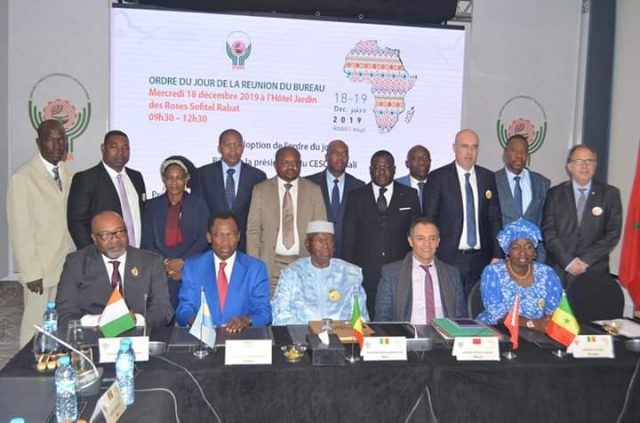 The House of Representatives adopted, on Wednesday the bill legalizing the use of cannabis for medical purposes.
The House of Representatives adopted, on Wednesday the bill legalizing the use of cannabis for medical purposes.
The text on “the legal uses of cannabis, medical, cosmetic and industrial”, was adopted by the House of Representatives with 119 votes for and 48 against.
The deputies of the Justice and Development Party (PJD), at the head of the government coalition, were the only ones to vote against the text presented by the executive, denouncing “haste” and risk of “exploitation during electoral campaigns” for the coming regional and legislative elections scheduled next fall.
The aim of the bill – which has yet to be approved by the second chamber of Parliament before being ratified – is to “convert illicit crops that destroy the environment into sustainable legal activities that generate value, money and employment,” according to the text.
The draft law provides for the setting up of a national agency in charge of buying the plant from farmers and selling it to pharmaceutical firms.
The text limits the plantation of cannabis to six regions only in northern Morocco and bans using the substance for recreational purposes.
The kingdom is counting on the “sustained development” of the global medical cannabis market, with forecasts of average annual growth of around 60% in Europe, its “target market”. Annual farm receipts are estimated to range from $420 million to up to $630 million by 2028.
Morocco is ranked the world’s largest producer of cannabis resin, according to the 2020 annual report of the United Nations Office on Drugs and Crime.
According to official figures, some 400,000 people, or 60,000 households live on the cultivation of cannabis.
Until now, small farmers in the North received “4% of final turnover in the illegal circuit” against potentially “12% in the legal market”, according to the MAP agency.
The legalization of therapeutic use aims to improve their living conditions and protect them from drug trafficking networks.
Taking the floor during the house of representatives plenary session, Interior Minister Abdelouafi Laftit said that this bill is in line with the changes incurred by the global drug control system and in a special context marked by an “unprecedented” enthusiasm in countries around the world to develop cannabis cultivation and profit from the income generated by the commercialization of its legal products.
Laftit underlined that the exhaustive studies carried out by his department showed that Morocco has great potentialities which are able to attract important investments for the industrialization of cannabis and the access to the global markets of these products.
He also highlighted Morocco’s competitive assets, namely the great knowledge of this plant gained over the centuries, which qualifies Moroccan farmers to guarantee the success of this project. The geographical position of the Kingdom as a gateway to Europe will undoubtedly facilitate access to the largest market for cannabis products.
The Kingdom’s logistics and its attractiveness of investment in general and foreign investment in particular are also part of these assets, he said.
This bill, which fills a legal gap in the management of cannabis, considers the farmer the cornerstone of this project by allowing him to have an authorization issued by the National Regulatory Agency for the cannabis-related activities, established under this bill, Laftit said.
In support of the efforts of negotiation between farmers and manufacturers, the bill recommends that farmers set up cooperatives which will be in charge of signing contracts with manufacturers and ensuring the preservation of farmers’ rights, underlined Laftit, adding that the Agency will also support the farmers and allow them to acquire the best methods for sustainable agriculture and to be open to global experiences in this field, in addition to the acquisition of quality seeds.
The Interior Minister also noted that the bill features the gender approach by instructing the National Regulatory Agency to improve the conditions of rural women in these regions.


